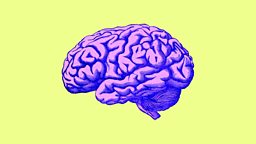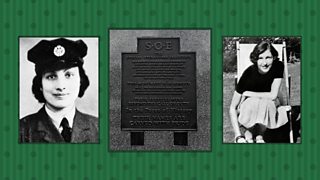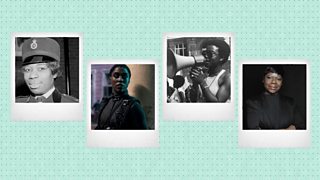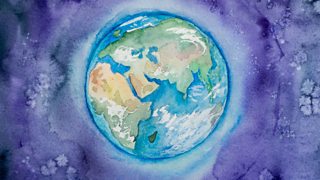Brené Brown: Seven things we learned about our emotions from the best-selling author on Woman’s Hour

Researcher, academic and best-selling author Brené Brown has spent the last two decades studying courage, vulnerability, shame and empathy.
Her TEDx talk, “the power of vulnerability”, is one of the top five most viewed TED talks in the world with more than 50 million views.
In her sixth and newest book, Atlas of the Heart, she takes us on a journey through 87 of the emotions and experiences that define what it means to be human.
Brené spoke to BBC Radio 4 Woman’s Hour’s Anita Rani about her book and our emotions. Here are some of the things we learned…
1. We don’t just have three emotions, it’s more like 87
Brené’s new book looks at the 87 emotions and experiences that define what it means to be human. She told Woman’s Hour how she came to that number and why “emotional granularity” is important.
“We taught a very large online class over the course of a year and we had over 500,000 comments. We de-identified them, ran them through human subjects protocol for approval to do a secondary analysis on, came up with 150 emotions that were very difficult for people to name and when they could accurately name and label them, it brought understanding and even healing. We took that 150, we did some focus group research with therapists and clinicians and we whittled that down to 87 emotions and experiences.
“Up until recently, research showed that we can name and label about three emotions accurately: happy, sad and angry. That means every nuanced feeling that we have - disappointment, resentment, dread, worry, wonder, awe - we shove into these three big crude buckets.
“Emotional granularity is the ability to get very specific about what we're feeling. Research shows that the more granular we are in our ability to name what we're experiencing, the better we can manage it, regulate it, move through it. If it's a positive emotion, we could replicate it in our lives. Emotional granularity is highly correlated with very positive living outcomes.”
2. Recognising emotions can make you feel like you have super powers
In the opening of her book, Brené speaks about her childhood and how in her family no-one spoke about emotions of any kind. It had an unusual effect on her.
“So for me, kind of survival and also as the oldest, as my job protecting my siblings in what was a very intense family, intense love, intense joy, and then also intense anger, an intense lack of predictability about how things were going to go, at a very early age, I learned very quickly how to recognise patterns and connections between people's behaviours, their thinking and their emotions. And I got really, really good at it. To the point where when I was in high school, I thought, maybe I'm like a witch or I had superpowers. It worked at home, it worked with coaches, it worked with teachers. I could look at the people in my class and just say, ‘this is not going to go well, like gear up’. And they would say, ‘well, she hasn't even said anything yet’. And I’d say, ‘I can tell by the look on her face, this is not going to go well’.”
3. Anger is a necessary catalyst for change but a terrible lifetime companion
Many of us may see anger as a ‘bad emotion’ but Brené doesn’t like to label it that way.
“Anger is a necessary emotion. The thing that we need to get away from is labelling emotions good or bad. They just are.
“Here's the thing about anger. For a long time, I, along with some other researchers, wondered if anger was a legitimate primary emotion or was always a secondary emotion covering something else. And 91 per cent of emotion researchers today believe that anger is a primary emotion. It can often cover things because… How much easier is it to say, ‘I'm so angry’, than ‘I'm hurt’, or ‘I’m disappointed’, or ‘I'm sad’. Those are harder.
“But let me tell you about anger. Anger is a beautiful, necessary catalyst for change. But anger needs to ignite something. It's a terrible lifetime companion. But it is a very important catalyst to change. When we see something that is unfair, unjust, lacks equity, our response of anger is what fuels change. But to stay in it perpetually, there’s a lot of physical, emotional and spiritual costs.”

4. Contempt is worse than anger, in Brené’s eyes
“Contempt is... Wow, what an emotion, it's worse than anger. If you're angry with me, I'm like, ‘OK, well, she’s really hacked off at me’, but I'm still engaged. Contempt is dismissing, you have been dismissed. You're not even worthy of the argument. So contempt is the fastest corrosion of a relationship.
“But also, politically, in our culture on a macro level, we hold so much contempt for each other. I consider myself to be very self-aware, I've evolved a lot, but right now with this new variant of Covid, I go into terrible five-year-old contempt for people not getting vaccinated. I just feel contempt.”
Brené says that when she feels contempt, she deals with it by leaning into her faith. “I just say to myself, you know, my challenge is to find God in the face of everyone I meet. Sometimes I’ve got to look really hard.”
5. Brené no longer thinks we are able to read emotion in other people
“One of the things that really shifted for me in this book was this idea about our ability to read emotion in other people. And I don't think we can do it. I thought that we could do it for 20 years. I used to say, ‘we just need to build skills around recognising emotion and self and others’. And I don't think we can do it, actually. I think emotion is biology, biography, behaviour, backstory. It's too complex.
“When we see someone enraged, when we see someone angry, when we see someone hurting, I think we have to get curious, listen, become stewards of the stories they tell us about their experiences, and believe them, even when their stories don't reflect our lived experiences.
“One of the things I always ask myself, and I ask other people all the time, is that when you see people enraged and angry and hurt, what do you have to tell yourself to make that OK? What is the narrative that you have to engage in when you see the Syrian refugees, when you see, in the US, the police brutality, especially towards black men. What is it that you have to say to yourself to make this OK? Is it the fear of discomfort? Is it the fear of complicity? Is it the fear to acknowledge privilege? Is it the fear of closing the door on an idea that this country is not what you thought it was? And the system is actually not broken? It's working exactly how it was designed, which I believe is the case.
“I think one of the reasons we're so disconnected from each other is that we are so untethered from ourselves. And I think if we're going to find our way back to each other, we're going to have to find our way back to ourselves first. And we're going to have to find some humanity in ourselves so that we can embrace the humanity and pain of other people.”

6. Nostalgia is a double-edged sword
For some people, nostalgia may be something you feel when you reflect on memories of happy days and times when things appeared to be easier. But for Brené, this emotion has two sides.
“I thought nostalgia was just dangerous. But I really wrestled with that because there's this great scene in Ratatouille, the movie, when the food critic comes in, and the little rat chef makes him ratatouille. And everyone's like, ‘this is a food critic, and you're going to serve a peasant dish?’ And they lay their ratatouille in front of the food critic… And he takes a bite and in a second, he's five. He's standing at the back door of his home, he looks like he's been in a bike accident or something. He's kind of bruised and skinned up and he's crying. And his mum pulls him to her bosom and comforts him and then sits him down at the kitchen table and serves him ratatouille. And then the food critic is crying, so there's this beautiful part of nostalgia.
“As it turns out, there's two parts of nostalgia. There's this one, when I was describing the Ratatouille scene, this reflective part. But then there's also the form of nostalgia that can be a dog whistle for everything from white supremacy to the oppression of people of colour to the oppression of women. It can be ‘the way things used to be, when people knew their place’. Make America Great Again was an entire, brilliantly constructed nostalgia foundation campaign recalling an America that never existed. In the 1950s, rates of domestic violence were much higher than they are now, addiction rates were worse.
“What researchers have found, and I'm so grateful for this, is the difference between a healthy, pleasant nostalgia and a dangerous dog whistle nostalgia is rumination.
“I was in London, maybe in 2016, and I had a moment where I was in the back of a black cab. The cabbie was an older white guy. And he said, ‘this is where I grew up, that's my school, now it's a mosque, it's all going to hell’. And I remember thinking, this is the dangerous part of nostalgia. This is the part where if leveraged correctly, by power-over politicians, if you give people in fear someone to blame, and then validate why it's okay for them to push their pain on other people, you can rule the world.”
7. To find joy and happiness, start with gratitude
“I don't think you start with joy and happiness. I think you start with gratitude. You think about what are you truly grateful for in your life? And what do you need to do to practise gratitude around that? Not just have an attitude of gratitude, but literally practise it? And then I think you think, how do I invite more of it in?
“So for me, playing tennis, family dinners, laughing with my sisters. I'm so grateful for those things. Then what am I doing on a daily basis so that my choices reflect bringing more of that into my life? Am I blocking my time for just meetings? Or am I blocking my time for tennis?”
Listen to Brené Brown’s interview with Anita Rani in full on BBC Sounds, where you can also find every episode of the Woman’s Hour podcast that you may have missed. Join the conversation on Twitter and Instagram @bbcwomanshour.




